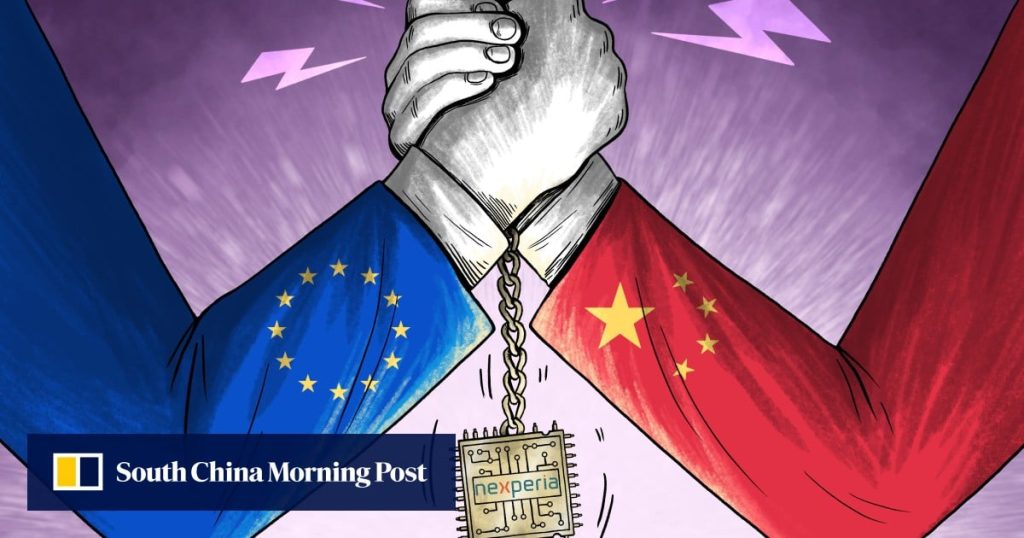Following its most recent upgrade in 2018, its annual production capacity surged to 90 billion units, making it the largest assembly site in the Chinese-owned Dutch chipmaker’s global network.
Yet, this symbol of seamless global manufacturing suddenly became a key pawn in a bitter geopolitical tussle last month, pitting the Netherlands government against the firm’s Chinese owner, Wingtech Technology.
The Nexperia saga, which has created a global car chip shortage, reveals a new reality: Europe’s once-vaunted neutrality and industrial sovereignty are eroding, while China’s foundational role in manufacturing has become too large to fail and too complex to legally unwind.
For nearly a month, parts of Nexperia’s Dongguan production lines have sat idle. Two factory workers said this week that some machinery had been turned off due to a wafer shortage since late last month, with one estimating that a third of the machines were idled – echoing earlier reports by the Post.
Wafers, which are cut into dies, are the core materials in assembling integrated circuits used in computing, communications and power switch applications.
Nexperia’s Chinese facility had relied on wafers from its fabrication plants in the United Kingdom and Germany, but those shipments were abruptly halted as the Dutch-based company grappled with an internal conflict.


